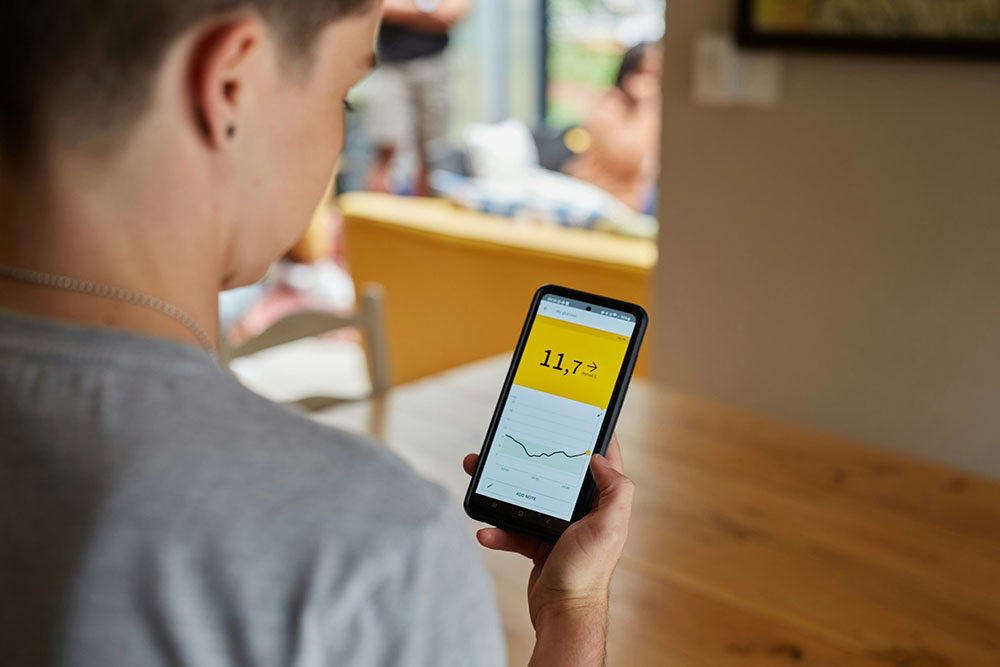
Think blood sugar only matters if you have diabetes? Think again. Whether you’re chasing better energy, clearer focus, or long-term health, your glucose levels are quietly shaping your day—meal by meal, mood swing by mood swing.
Blood sugar isn’t just a medical metric. It’s a real-time reflection of how your body handles life: food, stress, sleep, movement. And the more you understand it, the more control you gain—not just over your weight, but over how you feel, think, and age.
Let’s break it down.
What Is Blood Sugar, Really?
At its simplest, blood sugar (aka blood glucose) is the fuel your body runs on. It comes mostly from carbs, and insulin helps shuttle it into your cells. But when that system gets out of sync—too much sugar, too little insulin, or poor sensitivity—you start feeling it.
- Energy crashes
- Brain fog
- Cravings that feel like they’re running the show
Even if your lab results say “normal,” wild swings in glucose can mess with your day—and your long-term health.
The Risks You Don’t See (Yet)
1. Silent Insulin Resistance
You don’t need a diagnosis to be at risk. Insulin resistance often creeps in quietly, showing up as stubborn belly fat, constant hunger, or that “why am I always tired?” feeling.
Catch it early, and you can reverse it. Ignore it, and it may evolve into type 2 diabetes, heart disease, or worse.
2. Mood, Focus, and Energy
Ever feel irritable for no reason? Or hit a wall mid-afternoon? That’s often blood sugar talking. Spikes and crashes can hijack your mood, zap your focus, and leave you chasing caffeine or snacks just to stay upright.
Stable glucose = stable brain.
3. Long-Term Consequences
Chronically elevated blood sugar—even without diabetes—can fuel inflammation, accelerate aging, and increase risk for:
- Heart disease
- Fatty liver
- Cognitive decline
Prevention isn’t just smarter—it’s easier than treatment.
How to Keep Blood Sugar in Check (Without Obsessing)
1. Eat Like You Mean It
- Prioritize whole foods: veggies, lean proteins, healthy fats, and slow-digesting carbs.
- Skip the ultra-processed stuff that spikes glucose and leaves you hungrier.
- Fiber is your friend—it slows digestion and smooths out blood sugar curves.
2. Time Your Meals Wisely
- Don’t skip meals—it sets you up for overeating and glucose rollercoasters.
- Smaller, balanced meals throughout the day help maintain stability.
- Early dinners and less late-night snacking support overnight regulation.
3. Move After You Eat
- A 10-minute walk after meals can blunt post-meal spikes.
- Strength training builds muscle, which acts like a sponge for glucose.
- You don’t need to be an athlete—just consistent.
4. Sleep and Stress Matter More Than You Think
- Poor sleep and chronic stress raise cortisol, which raises blood sugar.
- Meditation, breathwork, and quality sleep aren’t just wellness fluff—they’re metabolic tools.
Should You Track Your Blood Sugar?
You don’t need a diagnosis to be curious.
- CGMs (continuous glucose monitors) are now available to non-diabetics and offer real-time insights.
- Finger-prick meters are affordable and useful for spot checks.
- Tracking helps you learn: Which foods spike you? Which habits stabilize you?
It’s not about perfection—it’s about patterns.
The Bigger Shift: Metabolic Health Is for Everyone
Blood sugar is the new vital sign. Just like blood pressure or cholesterol, it tells a story about your body’s resilience, flexibility, and future.
And as wearable tech and health data become more accessible, glucose awareness is going mainstream—not out of fear, but out of empowerment.
So next time you feel that afternoon slump, or wonder why your focus is off—don’t just blame the coffee or the meeting. Take a look at your blood sugar. It might be the quiet signal your body’s been sending all along. And the good news? You don’t need a diagnosis to start listening.
Do you think people who don’t have diabetes should still monitor their blood sugar levels?
